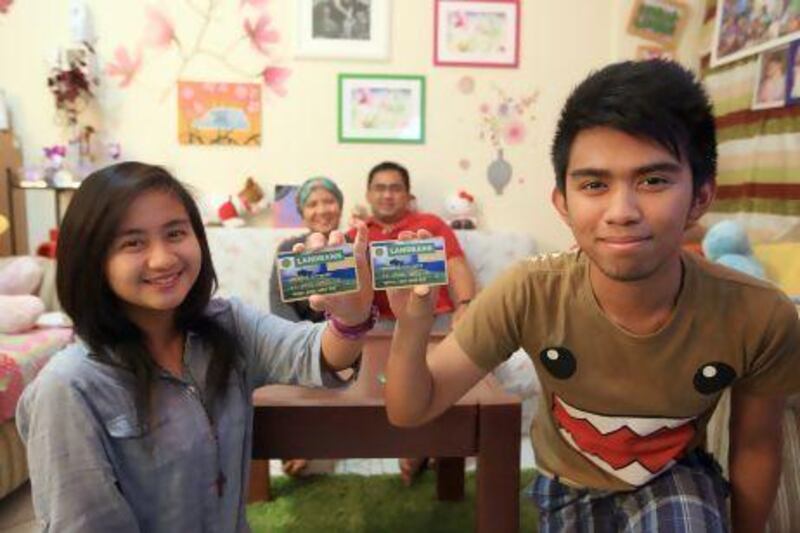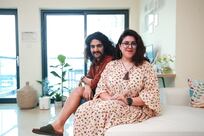ABU DHABI // Maria Annielou Catacutan, 16, got into the habit of saving her allowance when she was in her first year of high school.
"Whenever I go out with my friends, I'm ashamed to ask for money from my parents," she said. "So I try to save as much as I can."
Her brother Louie Anthony, 15, also tries to save his allowance, which he then spends on school projects and other activities.
Maria Annielou said their parents instilled in them the value of money and did not give them anything they wanted. Unlike some children, they never had fancy mobile phones or branded fashion.
The Commission on Filipinos Overseas (CFO), a government agency, is targeting young people like the siblings in an initiative to equip youth with a basic knowledge of savings.
The agency has partnered with the Land Bank of the Philippines in a programme called "Kiddie Katapat Savings".
Under the scheme, children of overseas Filipino workers who are 7 and older will be allowed to open and maintain their own ATM-accessible savings account with Land Bank for an initial deposit and minimum balance of 100 pesos, or about Dh10.
In turn, the agency and Land Bank will encourage the parents or guardians, who will hold separate accounts, to match the amount saved by their children.
"The matching scheme serves both as an incentive and motivating factor for the child to save even more," said Gerald Heriales, Land Bank's overseas remittance officer in the UAE.
Nico Herrera, an emigrant services officer at the CFO, said they were still trying to determine other areas to promote the scheme.
"Starting June 2013, we will also look for more schools in the Philippines where we can launch it," he said.
The focus is currently on the Middle East, which has a large number of Filipino residents. There are also plans to launch the scheme in Singapore, Japan, Hong Kong, the United States and Canada.
About 150 Philippine National School students and their parents in Abu Dhabi have enrolled in the programme. Land Bank is also reaching out to other Filipino schools in Abu Dhabi, Dubai and Sharjah.
"The process is as simple as its objectives," Mr Heriales said. "But we believe it will have a long-term and sustainable impact on the Filipino youth."
When it was introduced to her school last month, Maria Annielou and her friends were very excited about the programme.
"At last, we've got our own ATM," she said. "It will encourage us to save for our future."
Mr Geriales said it was important for the children to learn the concept of saving at an early age.
"They can never be sure if their parents will be earning the same tomorrow as what they earn today," he said.
But Rosaly Catacutan, 45, a nurse at Tawam Hospital, said the government should have launched the programme much earlier.
"It's too late," she said. "My daughter will be leaving us soon. But I agree it can still benefit our children since they'll have some savings."
Maria Annielou is flying to Manila on May 28 to attend university in June. Her brother will head off to university next year.
"I expect to be living on my own when I study in college," Louie Anthony said. "So I really need to be serious about saving."






